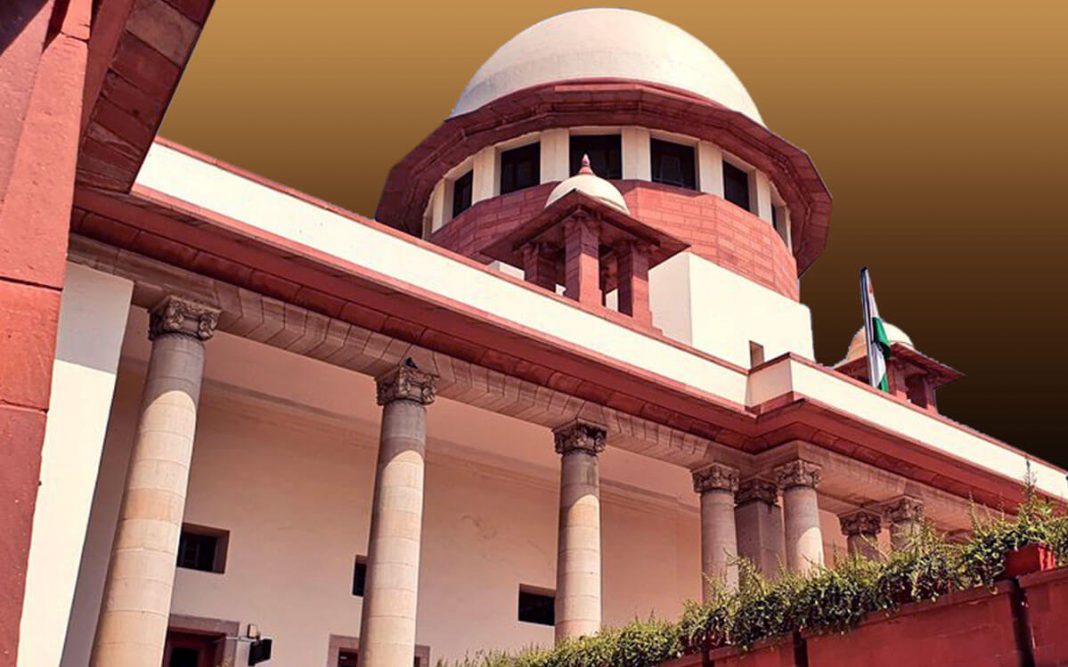The Supreme Court has sought the response of the Central government and the States/Union Territories on a petition seeking a comprehensive law ensuring adherence to the fundamental duties enshrined in the Constitution by the Citizens.
A Bench comprising Justice S.K. Kaul and Justice M.M. Sunderesh was hearing a petition, which also sought framing of guidelines for taking appropriate and adequate steps to sensitise the people and spread general awareness among the citizens in relation to performance of fundamental duties under the Constitution of India.
The petitioner sought to address the issue of existing laws being inadequate for ensuring performance of fundamental duties. It aimed at issuing directions to protect and safeguard fundamental rights under Articles 14, 19 & 21 of the Constitution, along with the fundamental duties.
It seeks directions from the Court to frame guidelines for regulation and effective implementation of Fundamental Duties in exercise of the plenary and extra ordinary power of this Court under Article 32 and 142 of the Constitution until the scheme in this regard is formalised by the Respondents.
The cause of action arose on November 26, 2019 on 70th Anniversary of the adoption of the Indian Constitution decided to launch a yearlongnation-wideprogram focusing on the duties ofcitizen. The cause of action further arose on 10.02.2020 and 22.02.2020 when the former Chief Justices of this Hon’ble Court HMJ Ranjan Gogoi and HMJ S. A. Bode emphasized the importance of the Fundamental Duties of every citizen at various public forums.
Fundamental Duties are defined as the Moral Obligation all citizens to help promote a spirit of patriotism and to uphold the unity of India. These duties set out in Part IV–A of the Constitution, concern individuals and the nation. Though they serves as a constant reminder to every citizen of their democratic conduct and behaviour.
It need to enforce Fundamental Duty arises due to new illegal trend of protest by the protestors in the garb of freedom of speech and expression, by way of blocking of road and rail routes, in order to compel the Government to meet their demands. The outbreak of Covid-19 pandemic also witnessed certain incidents, which show that we tend to forget that there are a set of sacrosanct moral obligation upon the citizens to adhere to the Fundamental Duties towards other citizens and towards the nation.
“In our constitution there is no provision for enforceability of the Fundamental Duties of the citizens, neither a uniform policy for enforcement of Fundamental Duties. If the special provisions are not incorporated in the Constitution of India or special Act is not enacted for enforcement of the Fundamental Duties, serious prejudice might be caused to the public at large”
The petitioner has also highlighted the reasons for filing the petition:
• The need to enforce Fundamental Duty has arisen due to illegal trend of protest in the name of freedom of speech and expression, by way of blocking of road and rail routes in to compel the Government to meet their demands.
• The ‘Fundamental Duties’ shall serve as a constant reminder of our national goals and a profound sense of social responsibility towards the nation.
• It is necessary that every citizen should remember their Fundamental Duties in the same way as they remember their fundamental rights.
• The most advanced democracies of the world have given due importance and recognition to the concept of duties.
• The insertion of Article 51-A was in a way necessary and a need of the time as it is means to hit a balance between civic rights, libertiesand freedoms and civic obligations.
• There is a pressing need to enforce and implement at least some of the Fundamental Duties to uphold and protect thesovereignty, unity and integrity of India.
Contentions and Grounds
On April 6,2020; SC invoked its powers under Article 142 to step away from conventional open court hearings and switch to Video conferencing. This was not a matter of discretion but a matter of duty, it was a reminder for citizens to commit to performance of duties along with enjoying the protection of FR.
The addition of Article 51-A brings our Constitution in line with Article 29(1) of the UDHR, 1948.
Justice J.S. Committee; for working and implementation of FD, commission strongly recommended that foremost step required by the union and state government to sensitize people regarding the provisions of FD.
Former Chief Justice, HMJ Ranganath Mishra wrote a letter to CJI issuing necessary directions to state for educating the citizens about FD. The court directed the central government to take appropriate steps for implementation of FD in WP no. 239 of 1998 (2203 supp2 SCR 59).
Petitioner has also relied on leading cases in reference to Rational Nexus between the FR and FD & Enforcement of FD
• Sarbanandasonowal v. UOI, the court Relied on 51-A(d) for holding that a citizen can bring an act to the notice of the court if it is for the protection and welfare of illegal immigrants.
• Vellore citizens welfare forum v. UOI, (1996) 5 SCC 647; and M.C Mehta v. UOI, (1997) 3 SCC 715; Court recognized the Precautionary Principle and polluter pays principle as an essential part of sustainable development.
• AIIMS Students Union v. AIIMS &ors; Court observed that FD are the collective duties of citizens and the states and state must ensure by sanctions that citizens abide by them.
• P.M Bharghava v. University Grants Commission; It was held that decision to introduce vedic astrology is not in conflict with Article-51A.
• Vineet Narain Case, (1998) 1 SCC S226.


